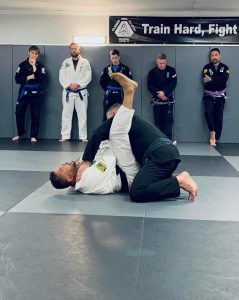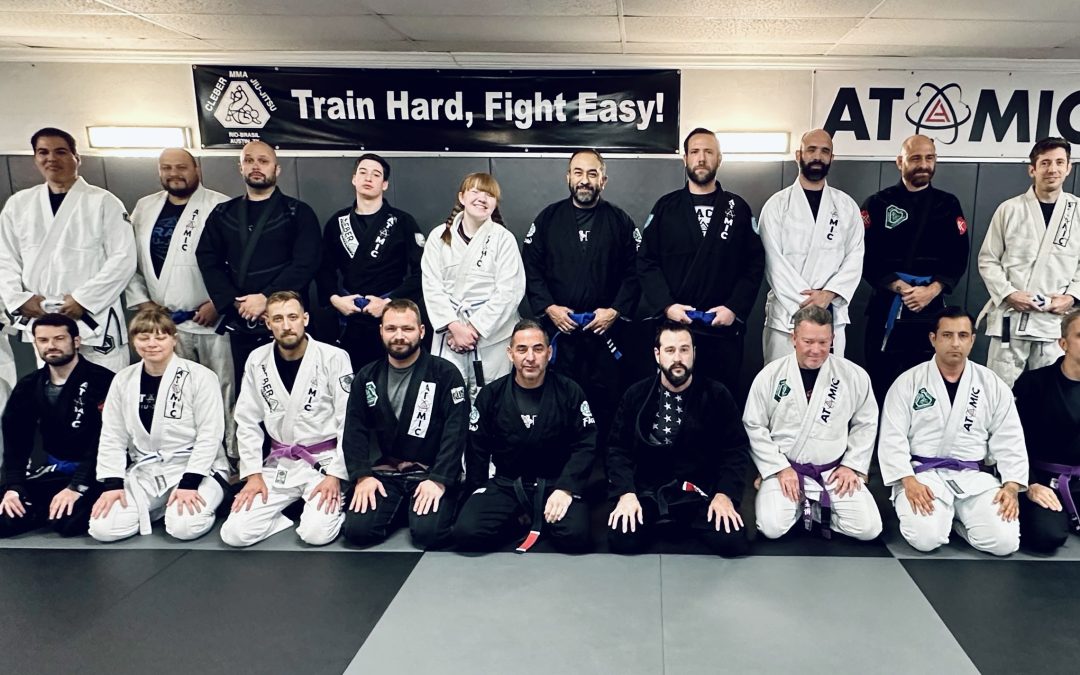7 Benefits of First Responders Training Jiu-Jitsu
Written By Adrian J Trevino
Atomic Jiu-Jitsu Black Belt
Integrating Brazilian Jiu Jitsu (BJJ) into the training regimen of law enforcement officers and first responders is indeed a prudent approach to enhancing their effectiveness and safety. Here’s why BJJ is particularly beneficial in this context:
- Control and Restraint: BJJ emphasizes techniques for controlling individuals without resorting to excessive force. Officers and first responders trained in BJJ techniques are better equipped to manage potentially volatile situations while minimizing harm to both themselves and suspects.
- Adaptive Response: BJJ training instills the ability to adapt to rapidly changing circumstances. This is crucial for law enforcement and first responders who often encounter unpredictable situations where traditional tactics may not be effective.
- De-escalation Techniques: BJJ provides officers with the tools to de-escalate confrontations by using controlled force. Officers trained in BJJ can employ techniques such as joint locks and positional control to neutralize threats without resorting to more
 aggressive measures.
aggressive measures. - Physical Fitness and Mental Toughness: BJJ training enhances physical fitness, agility, and mental resilience, all of which are essential qualities for law enforcement and first responders. Engaging in regular BJJ practice builds strength, endurance, and the ability to remain calm under pressure.
- Community Relations: By demonstrating proficiency in non-lethal tactics and restraint, officers and first responders can foster positive relationships within the communities they serve. BJJ training can help build trust and rapport with community members by showcasing a commitment to minimizing the use of force whenever possible.
- Professional Development: BJJ offers a structured framework for skill development and progression. While the focus should not be solely on achieving a certain belt rank, officers and first responders can benefit from the goal-oriented nature of BJJ training, which encourages continual improvement and refinement of techniques.
- Teamwork and Collaboration: BJJ training often involves partner drills and sparring, fostering a sense of camaraderie and teamwork among participants. This collaborative environment mirrors the cooperative efforts required in law enforcement and emergency response scenarios.
Incorporating BJJ into the training curriculum for law enforcement officers and first responders can contribute to safer outcomes for both personnel and the communities they serve. By equipping individuals with the skills to effectively manage conflicts while prioritizing safety and restraint, BJJ training aligns with the core objectives of protecting lives and promoting public safety.

